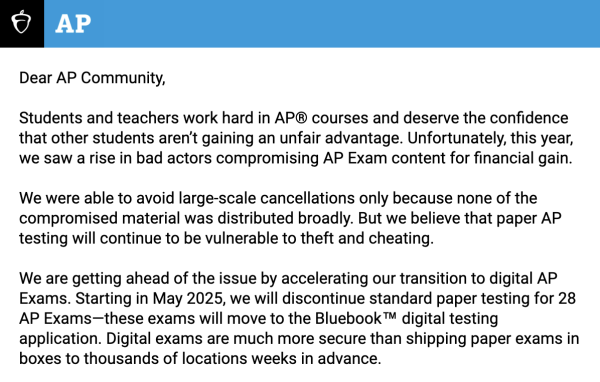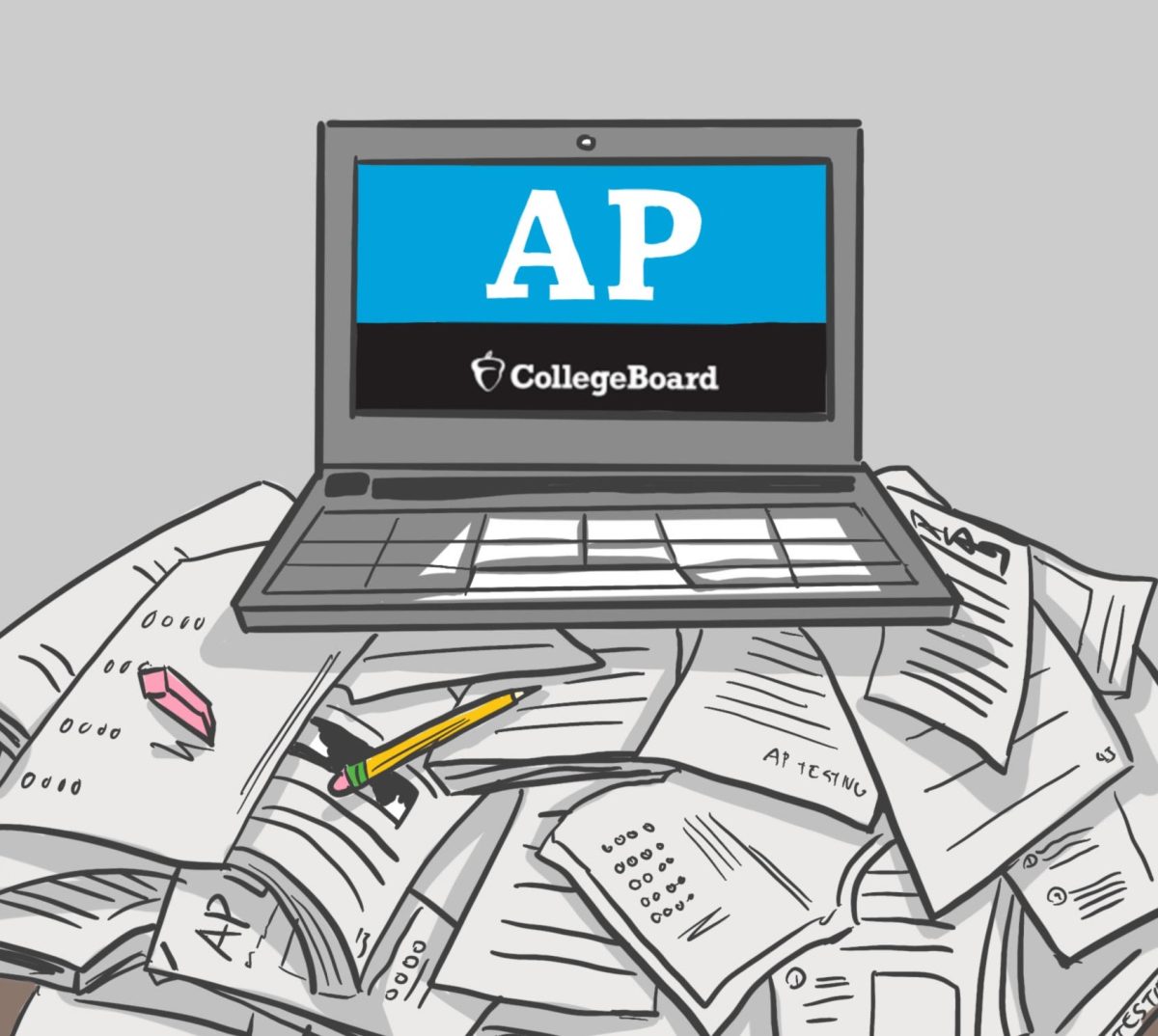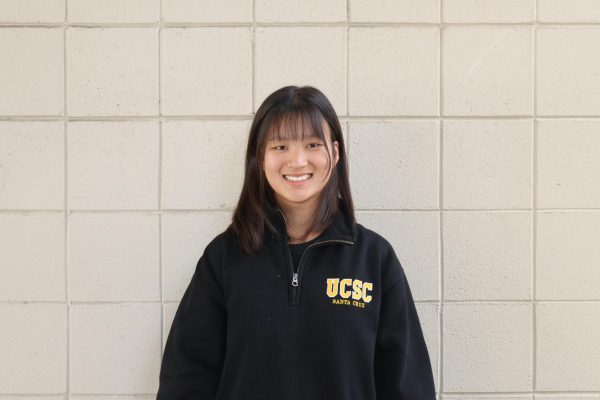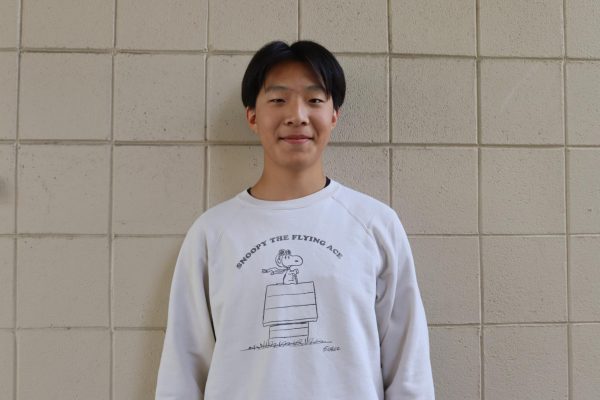Every May, the school’s student center, library and gymnasiums are packed to the brim with students taking College Board’s Advanced Placement (AP) exams. With just under half of all Los Gatos High and Saratoga High students taking at least one AP class, as reported by the district, AP exams have become an integral part of the district’s academic culture.
This year, following College Board’s decision to move every AP test into a hybrid or completely digital format, the district will no longer be accommodating students from other schools, nor will the two schools be offering tests that do not have a corresponding course offered at them, according to Patrick Bernhardt, the district’s director of Continuous Improvement and Accountability, and Abra Evanoff, who coordinates AP testing for Saratoga High. Additionally, all students will be taking AP tests through College Board’s Bluebook testing app on district-provided Chromebooks.
Originally, College Board’s timeline planned to transition nine exams into the digital format in 2025 and an additional six in 2026. However, they made a pivot this summer toward a significantly accelerated transition that includes 28 digital exams starting in 2025 in an effort to enhance the exams’ security.
A message from College Board was sent to school administrators on July 25, revealing that this choice was due to a “rise in bad actors compromising AP Exam content for financial gain,” with the conclusion that “paper AP testing will continue to be vulnerable to theft and cheating.”

The email, sent out to school administrators in July, reveals an apparent increase in cheating with paper exams cited as the main reason for the shift in plans.
Sixteen exams, including AP Computer Science A, AP Art History and AP Environmental Science, will be moving to a fully digital format. Twelve exams, including AP Calculus AB and BC, AP Biology, AP Chemistry and all four Physics exams, will be moving to a hybrid format. For these tests, College Board plans to have multiple-choice questions completed on Bluebook while free-response questions are to be displayed on computers, with answers written in paper exam booklets.
Since all of these exams’ digital components will require use of the districts’ Chromebooks — which already have the Bluebook app pre-installed — the school plans to limit the number of students and tests provided. This change will help avoid overflow issues, such as WiFi connection and testing space, Bernhardt said.
Students with accommodations will still be able to take need-based paper tests, Bernhardt said, and those who require separate rooms to take the exams will not be affected either.
However, subjects only offered in AP exams and not as courses, such as AP Psychology (SHS has historically only offered a General Psychology class) will no longer be offered. Additionally, while a limited number of students from other school districts have been able to take tests at SHS in previous years, these registrations will no longer be accepted.
“We want to make certain that any student [in our district] who’s enrolled in an AP course can take the AP exam,” Bernhardt said.
Updates will be posted on the district website and the school website to inform parents and students within and outside of the district of these changes.
Although not all AP tests will meet their maximum number of test-takers, those that do will cap the number of self-studied students eligible for registration in order to make sure all students taking the course in-school will be accommodated. Students who are self-studying for an AP exam offered at their school will be able to join a waitlist and be accepted depending on capacity.
In the unlikely event that a limitation on students who self-study the course would be necessary, the district will give priority to students closer to graduation: first to seniors, then to juniors, then to sophomores and finally freshmen.
If there is only space for a portion of lower-grade level students, the district plans on using a lottery system with the understanding that students without a spot will be eligible to take the same test next year.
“The schools are going to ask that families [register and pay for AP exams] relatively quickly in the fall,” Bernhardt said. “That will give us as much time as possible to figure out if there are any exams that are going to have impacted capacities.”
If an AP test is unavailable, students can sign up for exams at other schools or private testing centers open to registrations. However, Bernhardt warns that because this transition is taking place nationally, similar changes in other testing centers’ policies are a possibility.
Historically, the district has had relatively high enrollment in its AP program — according to Bernhardt, while the average high school offers eight AP courses, Saratoga High and Los Gatos together average 22.5 across both schools. Additionally, over 1,500 students from Saratoga High took an average of two tests each last year, with the average score being above a 4 out of 5 — the national average is 2.98.
At SHS, a total of 1,872 exams were administered last year, with an average score of 4.3 and 94% of scores being above the passing score of a 3 — an increase from 89% in the 2022-23 school year, according to Evanoff.
“The number of AP courses we offer is extraordinary. Student participation in the AP program is also exceptional,” Bernhardt said. “All of this speaks to the quality and dedication of our students, our teaching staff and the resources that the district and the community put into supporting the AP program.”



























